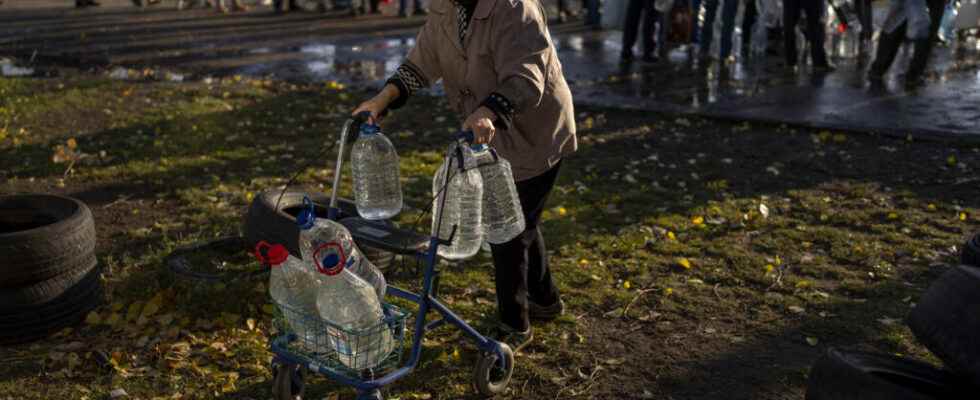Russian strikes on Ukraine’s energy infrastructure are of growing public concern. In Mykolaiv, in the south of the country, the power cuts come on top of another crucial problem: the water supply, which has become extremely difficult after the cut in the pipeline which has been supplying the town for forty years.
With our special correspondents in Mykolaiv, Anastasia Becchio and Boris Vicith
In April, Russian fire damaged the pipes that brought water from the Dnieper to the border between the regions of Mykolaiv and Kherson. Since then, the water flowing in the taps, yellow and salty, deteriorates the pipes even more quickly and creates a additional worry for the inhabitants.
Tuesday, October 25, workers finish covering the new water pipes in a trench dug on a sidewalk. In addition to the bombardments which regularly cause leaks, the workers are forced to very often change the rusting pipes. ” On this pipe, there had been four repairs on one meter. The pipes were already old but the salt didn’t help matters explains Vasily Bozhenov, a bucket of sand in his hand.
Boris Doudenko, the director of Mykolaiv Vodokanal, the public company for water supply, is alarmed by the lack of water for the winter, noting two leaky and rusty pipes.
This is what causes this water and the problem is likely to increase in winter. With the leaks, the pressure drops and we risk finding ourselves in a situation where we can no longer supply a majority of the population with water. That’s why we are doing our best to make as many repairs as possible, to replace pipes, in order to be able to get through the winter.
According to a BBC investigation, Russian forces deliberately targeted Mykolaiv’s water supply last April. Military strategy or accident, Boris Doudenko prefers not to decide. ” We do not know if the pipes were bombed intentionally or by chance, but for us it does not matter much, because the result is that we simply have no water. “, he laments.
At the entrance to the public company, elderly people fill water cans. A gesture that they have been repeating daily for six months.
► Read also: Ukraine: the specter of a nuclear disaster at the Zaporizhia nuclear power plant
